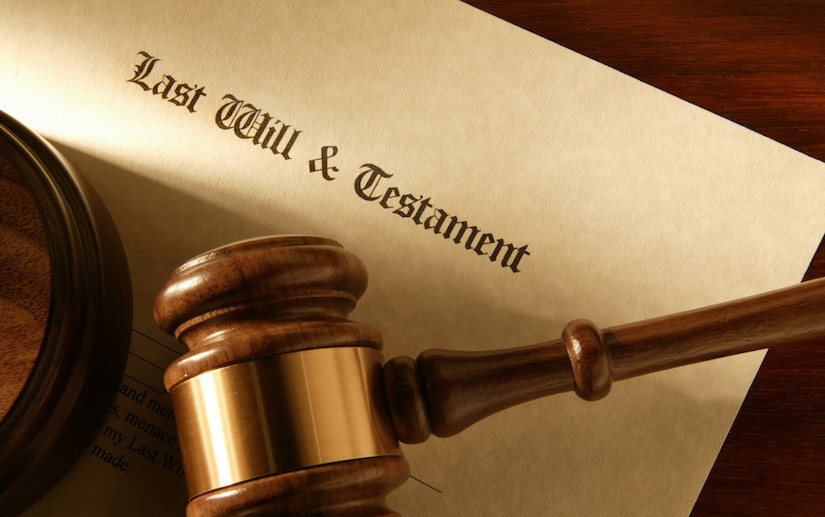
“Documents” is a term you’ll hear a lot when discussing your estate. There are certain documents that are essential to have drawn up by a knowledgeable attorney so that you and your loved ones are protected and secure after your death. In this Michigan Probate Law blog post, we will look at 8 documents that we recommend having in your estate file. When planning your estate, these documents should be set up in a way that your “affairs” will be in order so you don’t leave your survivors facing a legal mess of any kind.
Some of the documents recommended below are likely documents that you’ve heard of before, like a last will and testament and revocable living trust. However, there are other documents you might not have been aware of, like a digital asset trust.
While there are services on the web to allow you to prepare all 8 of these documents on your own, we caution against this. Hiring a trusted attorney with probate law experience is a much safer and secure way to go. You’ll be in the trusted hands of an attorney who will provide legal counsel and ensure that all i’s are dotted and t’s are crossed when it comes to your estate.
1. Last will and testament
A will gives you the power to decide what is in the best interests of your children and pets after you’re gone. It also can help you determine what will happen to possessions with financial or sentimental value. It typically names an executor — someone who will be in charge of following your directions. Finally, you can include any funeral provisions.
Use your will to name guardians for those under your care, including minor children and pets. Designate any assets you are leaving for their care.
If you’re married, your spouse needs a separate will, AARP says.
2. Revocable living trust
A living trust is another tool for passing assets to heirs while avoiding potentially expensive and time-consuming probate court proceedings.
You name a trustee — perhaps a spouse, family member or attorney — to manage your property. Unlike a will, a trust can be used to distribute property now or after your death.
If you have substantial property or wealth, a trust can provide tax savings.
ElderLawAnswers further explains the differences between trusts and wills. Creating a trust is not usually a do-it-yourself project. Consider getting an attorney’s help.
3. Beneficiary designations
When you purchase life insurance or open a retirement plan or bank account, you’re often asked to name a beneficiary, which is the person you want to inherit the proceeds when you die. These designations are powerful, and they take precedence over instructions in a will.
Keep beneficiary designation papers with your estate planning documents. Review and update them as your life changes.
4. Durable power of attorney
A durable power of attorney allows you to choose someone to act on your behalf, financially and legally, in the event that you can’t make decisions.
Don’t put off this chore. You must be legally competent to assign this role to someone. Older people who are worried about relinquishing control sometimes put off the task until they are no longer legally competent to do it.
5. Health care power of attorney and living will
To ensure that someone can make medical decisions for you in the event you become incapacitated, establish a health care power of attorney — also called a durable health-care power of attorney. This is different from the previously mentioned durable power of attorney for financial and legal affairs.
A living will will let you explain in advance of your death what types of care you do and do not want, in case you can’t communicate that in the future. It’s strictly a place to spell out your health care preferences and has no relation to a conventional will or living trust, which deals with property.
“You can use your living will to say as much or as little as you wish about the kind of health care you want to receive,” says legal site Nolo in a detailed article.
6. Digital asset trust
You can use a digital asset trust to decide what to do with your electronic property, including your computer hard drive, digital photos, information stored in the cloud and online accounts such as Facebook, Yahoo, Google and Twitter. Create a separate list of your passwords.
“What Happens to Your Email and Social Media After You Die?” explains how to make these decisions.
7. Letter of intent
For instructions, requests and important personal or financial information that don’t belong in your will, write a letter. Use it to convey your wishes for things you hope will be done. For example, you may have detailed instructions about how you want your funeral or memorial service to be performed.
No attorney is needed. The letter won’t carry the legal weight of a will.
8. List of important documents
Make certain your family knows where to find everything you’ve prepared. Make a list of documents, including where each is stored. Include papers for:
- Life insurance policies
- Annuities
- Pension or retirement accounts
- Bank accounts
- Divorce records
- Birth and adoption certificates
- Real estate deeds
- Stocks, bonds and mutual funds
Another item helpful for your heirs is a list of bills and accounts, including contact information and account numbers for each, so your representative can settle and close these accounts.
